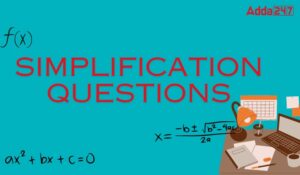Dear Students,
Quantitative Aptitude Questions for IBPS Exam
Today we have included Data Interpretation, Number Series and Quadratic Equation. You should try to solve these set of questions within 15-16 minutes If you fail to complete it in the stipulated time, then try again with full force. These quantitative aptitude questions are very important from exam point of view like IBPS RRB Exam, IBPS PO and IBPS Clerk.
Directions (1-5): What will come in place of the question mark (?) in the following number series?
Q1. 2, 17, 47, ?, 152, 227
(a) 23
(b) 92
(c) 93
(d) 85
(e) 89
Q2. 1, 1, 2, 4.5, ? , 30
(a) 10
(b) 9
(c) 11
(d) 12
(e) 7
Q3. 200, 100, 150, 75, 112.5, ?
(a) 48.5
(b) 54
(c) 90.5
(d) 56.25
(e) 62.25
Q4. 180, 189, 214, 263, 344, ?
(a) 389
(b) 465
(c) 433
(d) 553
(e) 430
Q5. 7, 11, 38, 54, ?, 215
(a) 179
(b) 151
(c) 125
(d) 135
(e) 115
Directions (6-10): Study the graph carefully to answer the questions that follow.
Q6. If profit for company Nokia in 2012 is 2000 and expenditure in 2013 for company Nokia is 50,000, then what is the total revenue in 2013 for Nokia? Give that total revenue = expenditure + profit.
(a) 52600
(b) 54200
(c) 53280
(d) 55800
(e) None of these
Q7. If profit in the year 2015 for company Sony is 3000 and profit of company Motorola in 2013 is equal to the profit of company Sony in 2014 then what is the profit of company Motorola in 2013?
(a) 1500
(b) 4000
(c) 3500
(d) 2000
(e) 2500
Q8. What is the average percentage increase in profit for company Nokia over all the years?
(a) 49%
(b) 32%
(c) 23%
(d) 38%
(e) 35%
Q9. What was the percentage increase in the percent increase of profit of company Motorola in the year 2014 from its previous year?
(a) 60%
(b) 65%
(c) 55%
(d) 50%
(e) 70%
Q10. If profit earned by company Nokia in 2014 is 27,000 and by company Sony in 2014 is 43500 then what is the total profit earned by them in the year 2013?
(a) 25,000
(b) 35,000
(c) 40,000
(d) 50,000
(e) None of these
Directions (11-15): In each of these questions, two equations (I) and (II) are given. You have to solve both the equations and give answer
(a) if x < y
(b) if x ≤ y
(c) if x = y or no relation can be established
(d) if x > y
(e) if x ≥ y





 Simplification Questions For Bank Exams ...
Simplification Questions For Bank Exams ...
 Quantity Comparison Questions for Bank E...
Quantity Comparison Questions for Bank E...
 Mixture & Alligation Questions for B...
Mixture & Alligation Questions for B...





